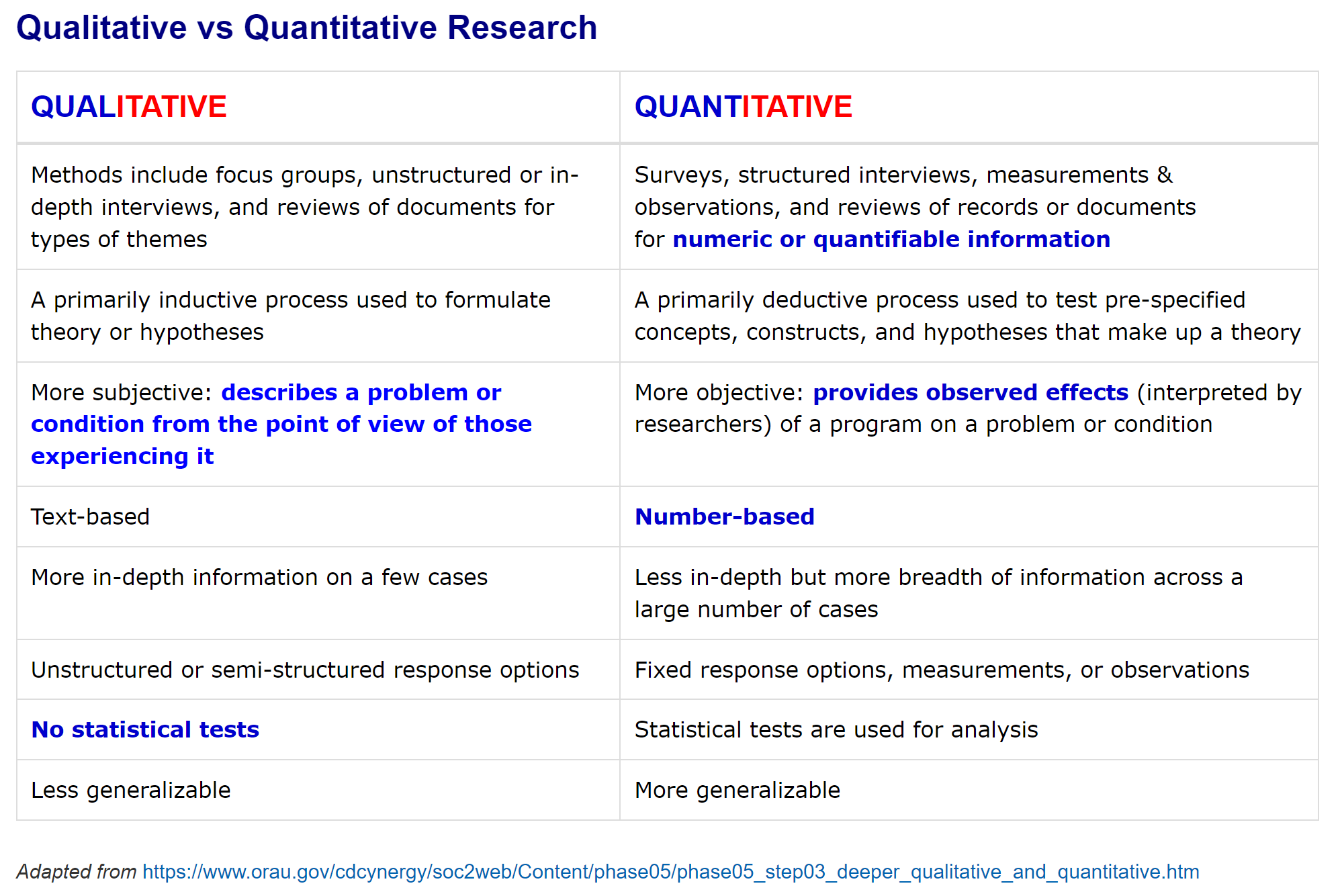Focus group research falls into two main groups: qualitative and quantitative.
Qualitative
Qualitative focus groups have a smaller number of participants, like 8-12, and the goal is to find individual opinions, attitudes, and beliefs. With a smaller number of participants, the moderator can follow up to find more information about the individual answers. Additionally, the presentation can cover more topics or go deeper into a particular topic because of the smaller group size.
Quantitative
Quantitative focus groups have a larger number of participants, like 300-1,000 (or more), and the goal is to find patterns in the responses. The patterns are then traced back to demographic trends. The larger groups typically take place through an online platform with participants watching/reading a presentation and completing a questionnaire. Another alternative is creating large panels of participants who then watch the presentation in a large meeting space and then break into smaller rooms to complete questions and possible discussions.
This is a great article that explains more in-depth the differences between qualitative and quantitative research. It’s also where I got this comparison chart below and I give full credit to the University of Texas Arlington Libraries.
What type of research is needed for lawsuits?
Lawyers looking to run focus groups for a case usually ask about cost (what is the price and time needed?) and purpose (why are we running a focus group?).
From a cost perspective, a qualitative focus group will be more efficient for price and time. Naturally, a quantitative focus group is higher priced due to more participants over a longer period of time gathering responses plus necessary technology & software to run analysis and calculations.
From a purpose perspective, a qualitative focus group provides answers on case themes, particular facts or witnesses, and depth on the “why” behind participants choosing a particular party. A quantitative focus group provides answers on case valuation and percentages of overall outcomes.
What type of focus group does Elizabeth run?
Elizabeth runs qualitative focus groups through online and in-person formats. She appreciates the flexible nature of qualitative approach and being able to get in-depth understanding of the participant feedback.









